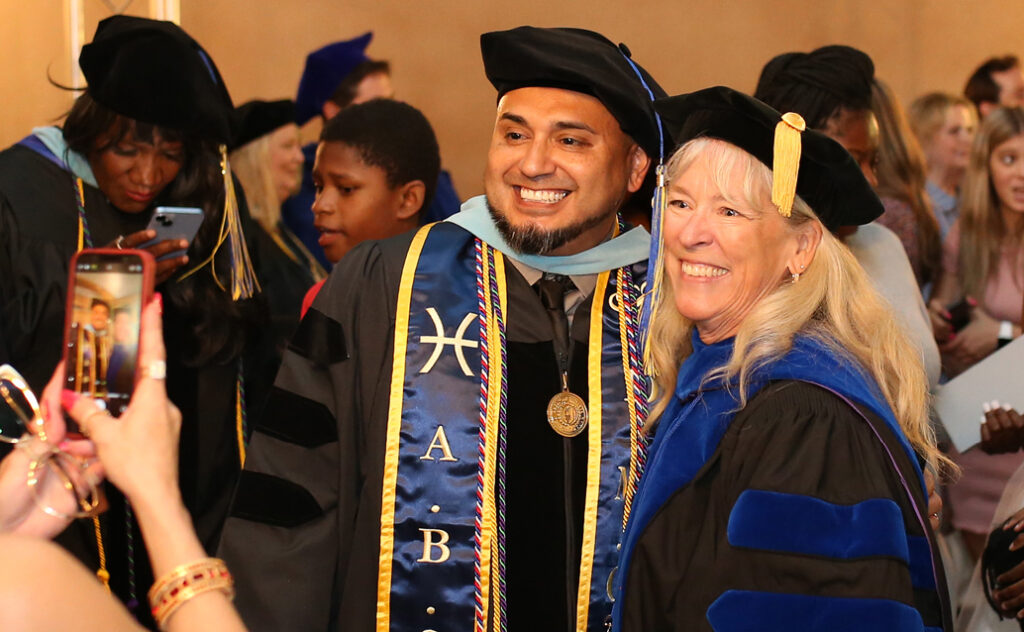
In education, the pursuit of excellence is a journey that never truly ends. For teachers who are passionate about their profession and eager to make a significant impact, earning a doctoral degree can be a transformative step with many benefits. There are many reasons that it’s a great idea. Earning a Doctor of Education (Ed.D.) will grow your skills and knowledge that can be applied toward your current job and also pay dividends in the future.
Immediate Benefits
Many benefits of earning your doctoral degree can positively affect your current work. They include an enhanced knowledge base, a productive challenge and an increased network to inform your role.
First, while completing your doctoral coursework, you’ll participate in courses that are relevant to your work environment. This will greatly deepen your expertise, expand your knowledge base and provide you access to people from other settings with new perspectives. You’ll also complete a dissertation, where you’ll have the opportunity to identify a problem that’s interesting and relevant to you. Your studies will equip you to be a thought leader in your field.
Another important benefit of completing a doctoral program is that you will be reminded of what it feels like to be a struggling student. Doctoral studies are rigorous; you will be challenged. This is a great way to demonstrate your commitment to lifelong learning and to understand how your students feel when faced with challenging work.
Additionally, pursuing a doctoral degree facilitates connections with a wide network of scholars, researchers and educators. Engaging in collaborative projects and participating in course discussions offer opportunities to exchange ideas, share best practices and stay updated on the latest advancements in education. These connections not only enrich a teacher’s own knowledge but also contribute to the broader advancement of the education field.
Future Benefits
Some future benefits of completing a doctoral program include increased earning potential, advanced job opportunities and future extended career options.
Financially, educators with a terminal degree often earn higher salaries or receive a stipend for having that level of education. The earlier in your career that you earn the degree, the longer you will benefit from the increased earnings. Over time, the degree will more than pay for itself. In some cases, your employer may be one of the many who offers tuition reimbursement, which means you can pay for your degree even faster because it costs you less.
Also, a doctoral degree opens doors to advanced leadership roles. Many schools, colleges and universities seek educators with terminal degrees to fill administrative positions, such as department chairs, program directors and deans. These leadership roles enable teachers to influence the broader education community by shaping policies, curricula and strategies that impact not only their own classrooms but entire institutions.
Finally, becoming an expert on an aspect of education that you are deeply passionate about will open opportunities for you in the future. You can present or provide consultation on your topic, publish in educational journals or develop a following that will lead to a career focus that will be fulfilling both professionally and personally.
In conclusion, earning a doctoral degree can be transformative for educators seeking to enhance their impact in education. The benefits extend far beyond the individual educator; they ripple through classrooms, institutions and the broader field of education, leaving an indelible mark on the future of learning.
Ready to earn your doctoral degree? American College of Education offers affordable and flexible doctoral-level programs to choose from.

